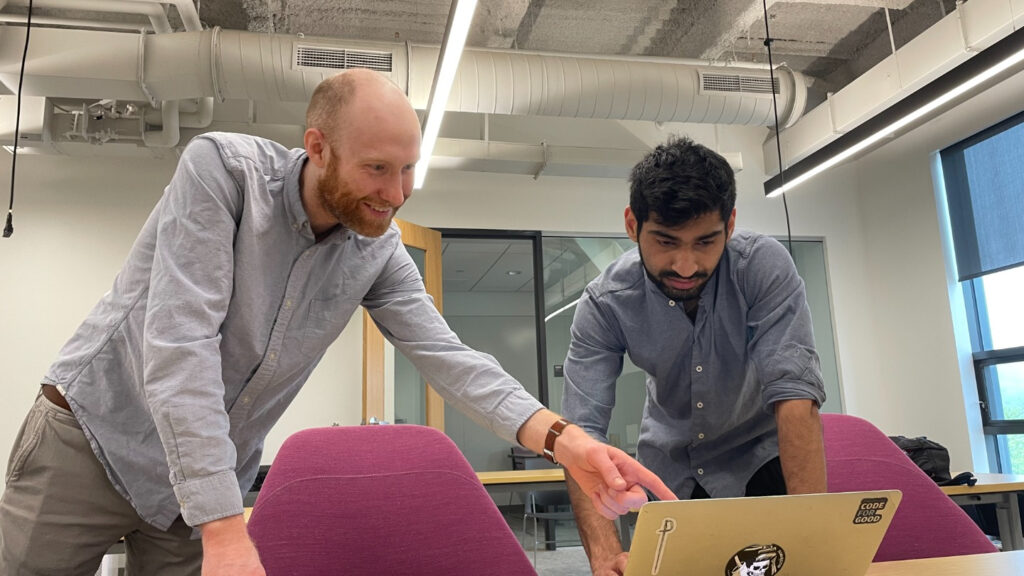Learning how to make AI more ethical

Justin Smith, assistant professor of computer science, and Ali Sultan Sikandar ’23
By Bryan Hay
A high-impact research grant often comes with high expectations, and faculty often turn to students for support and assistance.
At Lafayette, students have opportunities to experience graduate-level research and work directly with faculty mentors who are experts in their disciplines as they develop and refine their research.
Ali Sultan Sikandar ’23 is assisting Justin Smith, assistant professor of computer science, who recently received a $60,000 award from the Google Research Scholar Program to support research focusing on understanding how to make machine learning systems more ethical.
Smith is working with co-principal investigator Brittany Johnson, assistant professor of computer science at George Mason University, to help address the work of day-to-day software developers and how they consider ethics when they create a machine learning system.
Computer science ethics are wide ranging, affecting everything from political polls to product advertising. Criminal justice systems use software to predict whether a person will commit a crime and often factor those results into bail and sentencing decisions.
To help overcome these issues and their consequences, Smith says algorithms need to be written to prevent all types of bias.
In his supporting role, Sikandar, who is majoring in computer science with a minor in economics, has been analyzing online forms and repositories to identify any discussion of ethics. He’s been at it since 2021, meeting three times a week with Smith and Johnson to provide updates.
“We spent two or three weeks alone just trying to see what constitutes ethics and what does not constitute ethics when it comes to software practices and differentiate false positives,” he says. “Specifically, we’re looking at the machine learning and artificial intelligence aspect of it.”
Sikandar says he’s seeing and appreciating a different side of computer science, “not just the technical part of it but the documentation that goes into writing code. That’s the human side of computer science.”
He’s planning on graduate school where he might consider a further exploration of the ethics behind machine learning systems.
Smith says he’s been impressed by Sikandar’s ability to work independently.
“I give him very broad, complex problems, and he breaks it down, just as I would expect a graduate student to perform these assignments,” Smith observes. “One of the things that really has stood out in Ali’s work is his patient command of a very manual process. There was so much data that we had to sort through.”
Sikandar, who’s interning this summer at investment bank TD Securities in New York, says his computer science experiences in support of Smith’s research also will enhance his interests in economics. The team has been using Python, a computer programming language used to build software, automate tasks, and conduct data analysis.
“It’s very transferable to my economics side,” Sikandar says. “Assisting Prof. Smith has really been a valuable experience.”